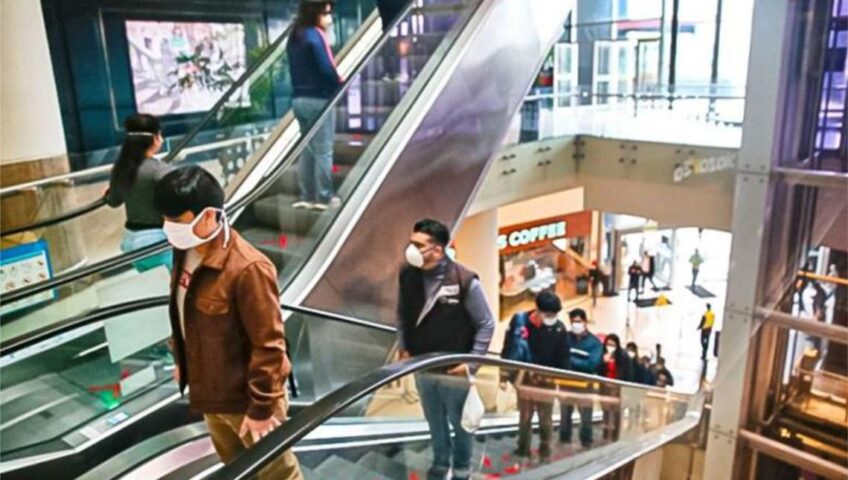Supreme Decree that extends the state of emergency governs from this Monday, February 28 for a period of 32 days.
The Executive eliminated the restrictions for all businesses and will enable 100% capacity in accordance with Supreme Decree 016-2022-PCM, which extends the State of National Emergency for 32 days, within the framework of COVID-19, and which is in force from this Monday February 28th.
The norm, which is modified every 15 days, no longer contemplates capacity restrictions or a curfew at the national level, as it did until two weeks ago.
The decree was approved last Friday, February 25, and bears the signatures of President Pedro Castillo, the President of the Council of Ministers, Aníbal Torres, the Minister of Health, Hernán Condori, and the other members of the ministerial cabinet.
It should be remembered that for that day it was planned to evaluate the proposal of the Minister of Health, Hernán Condori, to eliminate capacity restrictions and allow them to be 100% enabled.
Background
The restrictive measures of capacity for the various economic activities were imposed in the government of Martín Vizcarra with the aim of limiting the spread of COVID-19.
As the impact of the pandemic waned, capacity was increased to 80% in the case of provinces with a moderate risk level.
The authorization of 100% capacity has been a constant request from various business associations, which has been responded favorably in recent days from the Ministry of Health (Minsa) and the Ministry of Foreign Trade and Tourism (Mincetur).
However, the Pan American Health Organization (PAHO) expressed reservations with the evaluation made by the Peruvian Government to relax the restrictions against the pandemic.
According to the director of PAHO Health Emergencies, Ciro Ugarte, if 100% capacity is allowed, “it is very likely that cases will increase dramatically, as well as the risk of COVID-19 transmission.”
The PAHO spokesperson stressed that the decision to introduce, adapt or lift these measures “should be based on the situational assessment of the intensity of transmission and the capacity of the health system to respond.”
After the announcement of the measure a few days ago, it was questioned by the Medical Association of Peru and the former Minister of Health Óscar Ugarte.
Free capacity
The economic activities for which capacity has no longer been decreed are:
– Supply stores for basic products, supermarkets, markets, warehouses and pharmacies.
– Open beaches.
– Restaurants and similar whose customer service areas (lounge, bar and waiting room) total less than 200 square meters in internal areas.
– Restaurants and the like whose customer service areas (lounge, bar and waiting room) total equal to or more than 200 square meters in internal areas.
– Casinos and slots.
– Cinemas and performing arts.
– Temples and places of worship.
– Libraries, museums, archaeological monuments, cultural centers and galleries.
– Activities of sports clubs and associations.
– Banks and other financial entities.
– Business and professional events.
– Hairdressing and barbershop.
– Spa, Turkish baths, sauna, thermal baths.
– Colosseums.
– Gyms.
After the Minister of Health, Hernán Condori, said last week that his proposal would be evaluated by the Council of Ministers so that the capacity of closed and open spaces is 100%, the head of Education, Rosendo Serna, pointed out that If the measure materializes, the education sector will have to adapt.
“To the extent that the protocols change, we, the Education sector, are going to have to adapt to the protocols,” he said at the time on TV Peru when asked about the proposal announced by the head of the Minsa. So far the Minedu has not ruled on the implications of the Supreme Decree issued this Sunday.
New measures
Among the new measures, the rule establishes restrictions for minors over 12 years of age to enter public spaces such as beaches, stadiums and air and interprovincial transport. Now they will be required to present the vaccination card with both doses of the COVID-19 vaccine to access these spaces.
Mask stays
The rule published today indicates that restrictions are maintained, such as the mandatory use of a KN95 mask or, failing that, a three-fold surgical mask and a fabric mask on top to circulate on public roads and in closed places.
About social gatherings
Likewise, parades, patron saint festivities and civil activities are still suspended, as well as all kinds of meetings, social, political or other events that involve concentration or agglomeration of people, which put public health at risk.
Military and police ceremonies are excepted from this last measure, which must comply with the respective health provisions and rules of physical or physical distancing.
Source


Recent Comments